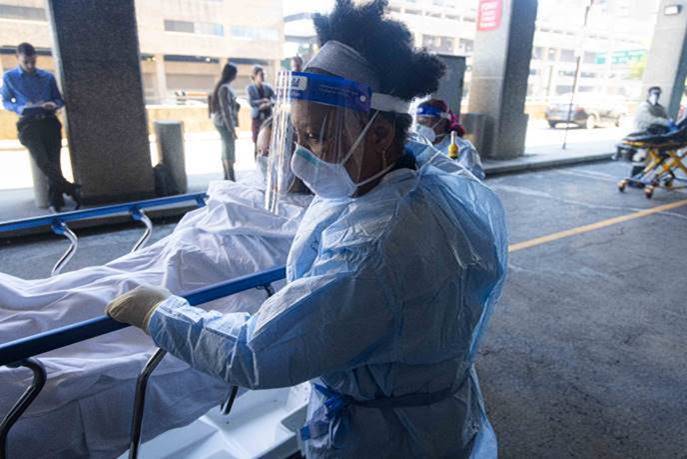LONDON (Reuters) – Nearly 6% of people in England were likely infected with COVID-19 during the peak of the pandemic, researchers studying the prevalence of infections said on Thursday, millions more people than have tested positive for the disease.
A total of 313,798 people have tested positive for COVID-19 in Britain, 270,971 of which have been in England, or just 0.5% of the English population.
However, a study which tested more than 100,000 people across England for antibodies to the coronavirus showed that nearly 6% of people had them, suggesting that 3.4 million people had previously contracted COVID-19 by the end of the June.
The results are consistent with other surveys, such as those conducted by the Office for National Statistics, which suggest higher levels of COVID-19 in the community during the pandemic than implied by daily testing statistics.
Healthcare and care workers were most likely to have been previously infected. Prevalence of infections appeared to be be highest in London, where 13% of people had antibodies, while minority ethnic groups were two to three times as likely to have had COVID-19 compared to white people.
Prime Minister Boris Johnson had early on hailed antibody tests as a potential game-changer in tackling the pandemic. But while helpful for population studies, scientists say the margin of error for the tests makes them unreliable for use at the individual level.
The researchers also cautioned that although antibody tests were helpful for running such large scale studies, they were not a guarantee of future immunity.
“There are still many unknowns with this new virus, including the extent to which the presence of antibodies offers protection against future infections,” said Graham Cooke, research lead at Imperial.
“Using the finger-prick tests suitable for large scale home testing has given us clearest insight yet into the spread of the virus in the country and who has been at greatest risk.”
(Reporting by Alistair Smout, editing by Estelle Shirbon)






















